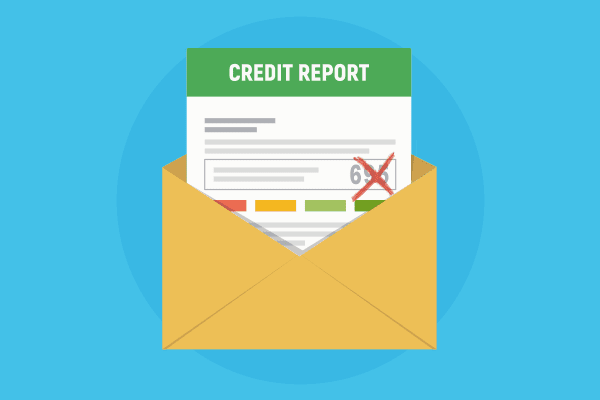Maintaining accurate credit reports is crucial for individuals to ensure fair and accurate assessments of their creditworthiness. Inaccurate information on credit reports can significantly impact credit scores and borrowing capabilities. Fortunately, there are established procedures to rectify these inaccuracies.
Understanding the Importance of Accurate Credit Reports
Credit reports serve as a comprehensive record of an individual’s credit history, including credit accounts, payment history, and other pertinent financial information. Lenders, employers, and other entities often rely on these reports to assess an individual’s financial responsibility. Inaccurate information can distort this assessment, potentially leading to adverse consequences.
Identifying Inaccuracies in Credit Reports
Regularly reviewing credit reports from major credit bureaus—Equifax, Experian, and TransUnion—is the first step in identifying inaccuracies. Common errors might include incorrect personal information, unauthorized accounts, inaccurate account statuses, or erroneous late payments or defaults.
1. Personal Information:
Start by carefully examining personal details, including name, address, Social Security number, and employment history. Even minor discrepancies, such as misspelled names or outdated addresses, can be indicative of potential inaccuracies.
2. Account Information:
Scrutinize all listed credit accounts, loans, and credit cards. Check for any unfamiliar or unauthorized accounts that might indicate identity theft or fraud. Additionally, verify the accuracy of account statuses, balances, and payment histories for each account.
3. Credit Inquiries:
Review the section detailing inquiries made on your credit report. Ensure that all inquiries listed are legitimate and authorized. Unauthorized or unfamiliar inquiries could signal potential fraudulent activities or errors.
4. Public Records:
Examine any public records included in the report, such as bankruptcies, liens, or judgments. Verify the accuracy of the information provided, ensuring it aligns with your financial history.
5. Discrepancies Across Bureaus:
Given that information might differ slightly across different credit bureaus, comparing reports from each bureau can help identify inconsistencies or discrepancies that require further investigation.
Steps to Thoroughly Review Credit Reports
1. Regular Monitoring:
Regularly reviewing credit reports, ideally at least annually, helps identify errors or suspicious activities promptly. Additionally, monitoring reports more frequently, especially before applying for significant loans or mortgages, is advisable.
2. Detailed Examination:
Carefully scrutinize each section of the credit report, focusing on details and cross-referencing information with personal financial records when necessary. Highlight any discrepancies or unfamiliar information for further investigation.
3. Reporting Inaccuracies:
Upon identifying inaccuracies, individuals should take immediate action by reporting these discrepancies to the respective credit bureaus. Providing clear and concise documentation supporting the claim of inaccuracy is crucial to initiating the dispute resolution process.
4. Seeking Professional Assistance if Needed:
In cases where the inaccuracies are complex or challenging to resolve independently, seeking guidance from a credit counselor or a legal professional with expertise in credit reporting laws can be beneficial.
5. Continuous Vigilance:
Maintain a proactive approach to credit monitoring, recognizing that accurate credit reports are essential for various financial endeavors. Consistent monitoring and swift action in response to any discrepancies contribute significantly to maintaining accurate credit profiles.
By implementing a systematic approach to reviewing credit reports and meticulously examining each section for potential inaccuracies, individuals can effectively safeguard their financial health and ensure the accuracy of their credit histories.
Steps to Correct Inaccuracies
1. Obtain and Review Credit Reports Regularly:
Individuals are entitled to one free credit report from each bureau annually. Regularly checking these reports allows for prompt identification of inaccuracies.
2. Document and Highlight Errors:
For any identified inaccuracies, it’s crucial to document them clearly, highlighting the specific errors on the credit report.
3. Dispute Errors with Credit Bureaus:
Initiate a dispute with the respective credit bureaus by submitting a formal dispute letter. Include supporting documentation, such as account statements or correspondence, to substantiate the claim.
4. Directly Contact Creditors if Necessary:
In certain cases, errors might stem from information provided by creditors. Contacting the creditor directly to rectify the mistake can expedite the correction process.
5. Monitor and Follow Up:
Continuously monitor the dispute process and follow up with the credit bureaus to ensure timely resolution. Credit bureaus typically investigate disputes within 30 days and provide updates on the status of corrections.
Importance of Timely Resolution
Timely resolution of credit report inaccuracies is crucial. Errors left unaddressed can have prolonged adverse effects on credit scores, potentially impacting loan approvals, interest rates, employment opportunities, and even housing options.
Effect on Credit Scores and Borrowing Abilities
The presence of inaccuracies can significantly lower credit scores, leading to increased interest rates on loans and credit cards or even denials of credit altogether. Correcting these errors is essential to restore accurate credit profiles and maintain favorable borrowing terms.
Conclusion
In conclusion, ensuring the accuracy of information on credit reports is paramount for maintaining a healthy financial profile. Promptly identifying and correcting inaccuracies through the established dispute resolution process is vital. Regular monitoring of credit reports and swift action to rectify any errors contribute significantly to preserving accurate credit histories, enabling individuals to access credit facilities on fair terms.











